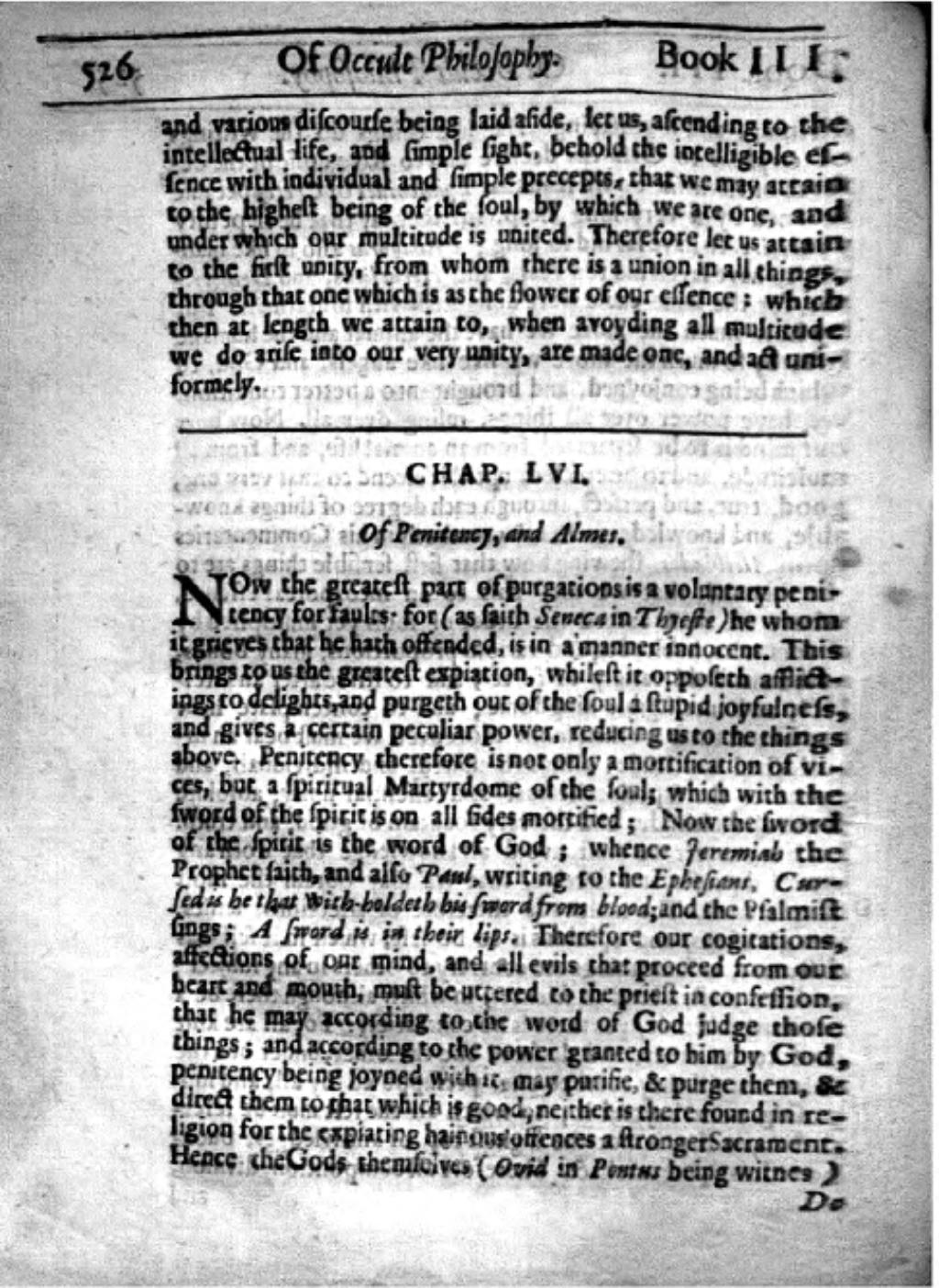and various discourse being laid aside, let us, ascending to the intellectual life, and simple sight, behold the intelligible essence with individual and simple precepts, that we may attain to the highest being of the soul, by which we are one, and under which our multitude is united. Therefore let us attain to the first unity, from whom there is a union in all things, through that one which is as the flower of our essence: which then at length we attain to, when avoyding all multitude we do arise into our very unity, are made one, and act uniformly.
Chapter lvi. Of Penitency, and Almes. Now the greatest part of purgations is a voluntary penitency for faults: for (as saith Seneca in Thyeste) he whom it grieves that he hath offended, is in a manner innocent. This brings to us the greatest expiation, whilest it opposeth afflictings to delights, and purgeth out of the soul a stupid joyfulness, and gives a certain peculiar power, reducing us to the things above. Penitency therefore is not only a mortification of vices, but a spiritual Martyrdome of the soul; which with the sword of the spirit is on all sides mortified; Now the sword of the spirit is the word of God; whence Jeremiah the Prophet saith, and also Paul, writing to the Ephesians, Cursed is he that with-holdeth his sword from blood; and the Psalmist sings: A sword is in their lips. Therefore our cogitations, affections of our mind, and all evils that proceed from our heart and mouth, must be uttered to the priest in confession, that he may according to the word of God judge those things; and according to the power granted to him by God, penitency being joyned with it, may purifie, & purge them, & direct them to that which is good; neither is there found in religion for the expiating hainous offences a stronger Sacrament. Hence the Gods themselves (Ovid in Pontus being witnes),
